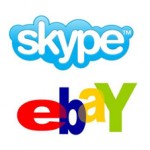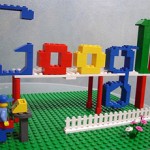 Mountain View, California — Having captured the Web’s text-based ad market, Google now wishes for a bigger piece of the display advertising market currently dominated by Yahoo, the search Goliath on Thursday took the wraps off a revamped DoubleClick Ad Exchange, a hub to connect publishers and advertisers looking for a bargain through its DoubleClick division.
Mountain View, California — Having captured the Web’s text-based ad market, Google now wishes for a bigger piece of the display advertising market currently dominated by Yahoo, the search Goliath on Thursday took the wraps off a revamped DoubleClick Ad Exchange, a hub to connect publishers and advertisers looking for a bargain through its DoubleClick division.
“The Ad Exchange is a real-time marketplace that helps large online publishers on one side; and ad networks and agency networks on the other, buy and sell display advertising space,” said Neal Mohan, vice president of product management, in a post on the company’s blog.
“Better technology can help make display advertising work better for all involved,” Mohan, said in a statement. “Our aim is centered upon growing the display advertising pie for everyone. The DoubleClick Ad Exchange is a major part of that goal.”
The force behind Google’s pitch is that display advertising should be simpler. It describes a key plank in Google’s plan to supplement its market-leading business of serving text-based ads alongside Web search results with the more visual, graphical ads that appear on websites — a market dominated by online rivals Yahoo and Time Warner Inc’s AOL.
The refurbished exchange will integrate Google’s AdWords and AdSense programs, as well as feature real-time bidding and a new API (application programming interface) designed for ad networks.
“It is just like a stock exchange,” Google said in a note (available here in PDF format) explaining the new service. The ad exchange is the most significant product to emerge from Google’s $3.1 billion acquisition of DoubleClick in 2007, a move that signaled the search leader’s intent to build out its graphical ad business.
Yahoo, which caters to the largest number of display ad impressions in the United States, online ad exchange through its RightMedia, an exchange it purchased in 2007 for $680 million, said it expected the display market to have other exchanges.
“We welcome these exchanges, and look forward to working with them and integrating with them for our partners,” Yahoo Marketplace chief Frank Weishaupt said in a statement. “The industry will be well provided if all exchanges embrace the values we cherish, and will help promote rather than restrict the spirit of openness and the resulting transparency and liquidity of supply, demand and data in the industry.”
Ad exchanges increasingly play an important function by providing a forum for publishers to sell the unsold ad space on their websites to the highest bidders. The market has become more divided as Web users spend more time on social networks and blogs instead of relying on portals and other destination sites.
According to Google, more than 40 percent of online ad inventory often goes unsold because publishers do not have an efficient way to sell the slots.
“We want to make display advertising as accessible and open as possible, like search advertising is today,” Mohan, said in a statement.
Mohan said the new version of the DoubleClick exchange features tools that allow brand advertisers to more precisely target audiences and to monitor the results.
“The way the DoubleClick exchange was set up previously, it just did not have enough liquidity,” said ThinkEquity analyst William Morrison.
He said the changes could make Google the dominant exchange for display advertising on the Internet, but noted that it would not happen overnight.
Google’s dominance of the search engine advertising market has been induced by text ads. Google manages the lion’s share of search advertising, which matches text advertisements with search results when users look for information online.
In July, Google Chief Executive Eric Schmidt said that display advertising is likely to be “the next billion dollar business” at Google.
Under the new system, publishers are promised more control over who is advertising on their platform, as well as more granular reporting about the effectiveness of their sites’ performance.
For advertisers, the exchange seeks to broaden the menu of sites available for them to place their messages, automating the connection with hundreds of thousands of publishers on Google’s AdSense network.
Google generated nearly $22 billion in sales last year, virtually all of it from its paid search ad business, according to analysts.


